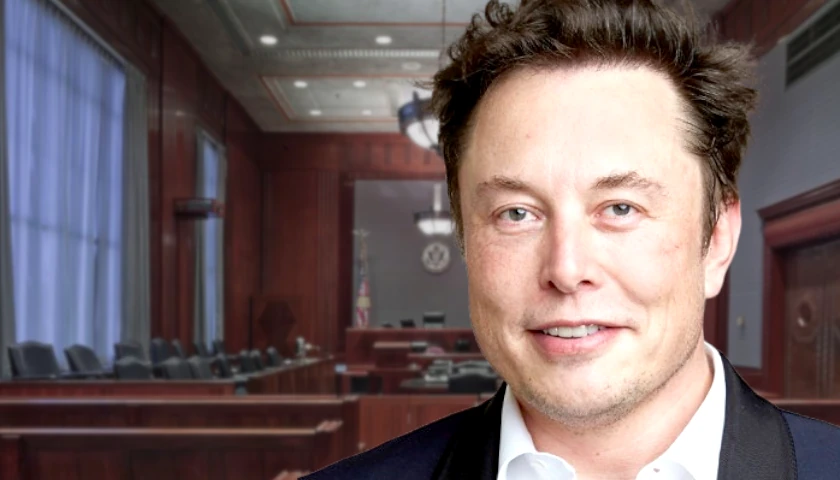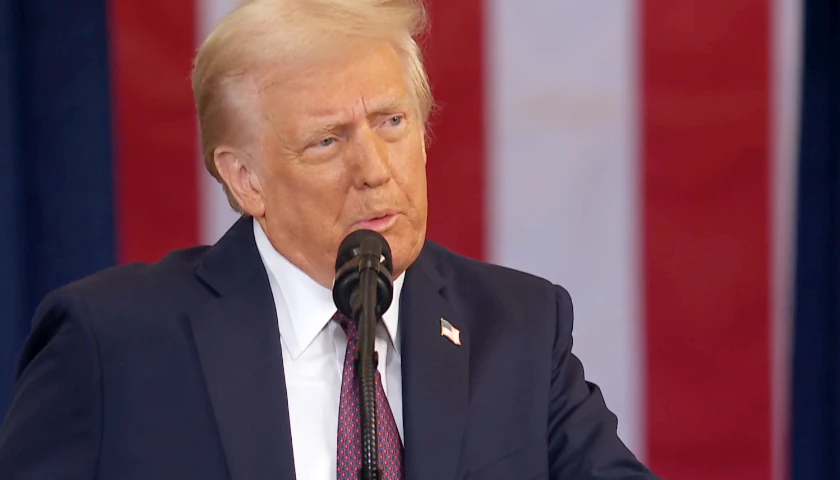by Kurt Hofer
“Europe will be your revenge,” are the purported words of West German Chancellor Conrad Adenauer to French Prime Minister Guy Mollet in 1956. The quip was related to America’s siding with Egypt and the USSR during the Suez Canal Crisis against Great Britain, France and Israel. Regardless of Adenauer’s precise intention, the quote underscores the fact that the North Atlantic Alliance (NATO) has always suffered fissures, even if it held together long enough to win the Cold War and longer still, for NATO and the EU to expand into Central and Eastern Europe.
Whether the Suez Crisis in the 50s, Charles de Gaulle’s unilateral withdrawal of France from NATO’s high command structure in the 60s, Willy Brandt’s overtures to the East via Ostpolitik in the 70s, or Reagan’s placement of strategic intermediate range nuclear warheads in West Germany in the 80s against the wishes of the German left, European-American rivalries and conflicts of interest have always been part and parcel of the Atlantic Alliance. And yet the alliance remains important, because North America and Europe share indissoluble bonds that cut across religious, political and cultural history. Modern democracy — despite its relativization and ‘deconstruction’ by progressive historians — was incubated in the West. For this reason alone the alliance is of value: because Western nations share a common heritage. Commonality breeds loyalty and fosters cohesion, both of which are necessary for the preservation of norms and traditions. Europe and North America have a lot in common with one another, and therefore they share a collective interest in preserving what makes them unique within the vast panoply of human political arrangements.
During Trump’s presidency, left wing media wisdom dictated that Trump had sullied America’s relationship with the EU and NATO by calling the former out as a trade rival and the latter —Germany in particular — as a freeloader on American security guarantees. But as European political columnist Jorge Gallarza pointed out in Newsweek, the prospect of a Biden Presidency — and with it, Biden’s wisdom and appreciation of the true importance of the American relationship with Europe — does not appear to have tipped the geopolitical scales towards Anglo-European rapport. In January, the EU signed a trade deal with China that could have just as easily been postponed until Biden took office to allow for the president’s feedback. Likewise, well after Biden won the election, President Macron of France pontificated — in typical multilateral idealism fashion — about Europe’s future role in world affairs as one of “strategic autonomy.” The writing was on the wall: in a world in which China is on the rise and America appears to be sputtering, Europe will be largely neutral
 All of this is to say that President Biden’s meeting this past weekend with other G-7 nations in England to come up with a comprehensive plan to “counter” Chinese influence around the globe is shrouded in doubt. Do Merkel’s Germany and Macron’s France wish to “counter” China and bolster ties with the U.S., or would ‘strategic autonomy’ dictate that at the end of the day the EU would be happy to sideline American interests in exchange for greater access to the Chinese markets?
All of this is to say that President Biden’s meeting this past weekend with other G-7 nations in England to come up with a comprehensive plan to “counter” Chinese influence around the globe is shrouded in doubt. Do Merkel’s Germany and Macron’s France wish to “counter” China and bolster ties with the U.S., or would ‘strategic autonomy’ dictate that at the end of the day the EU would be happy to sideline American interests in exchange for greater access to the Chinese markets?
The fundamental problem for Europe and America in confronting China, aside from China’s divide-and-conquer strategy evidenced by its finger-in-the-eye trade deal with the EU on the eve of Biden’s inauguration, is one of values and beliefs. America and Europe cannot fight a Chinese-led neo-imperialism with its own version of the same — the globalism of post-nationalist bureaucrats in Washington and Brussels. The reasons for this are manifold. Firstly, the post-Cold War neoliberal agenda of unbridled globalization fails to birth enduring loyalties. Brexit, the Trump election, the rise of anti-EU populist parties like Vox in Spain and AfD in Germany and the recalcitrance of Hungary and Poland in submitting to the EU’s quota system for Syrian asylum seekers in 2015 are but a few pieces of evidence indicating that Europeans and Americans will not fight for the likes of a supranational managerial state that doesn’t represent the interests of any one nation-state. Whether Germans or Americans, Spaniards or Britons, an increasing share of Western electorates is sending the signal that they are no longer willing to sacrifice for status-quo globalism. Cheaper consumer goods in the West and the expansion of transgender rights outside it are losing ground to the less abstract, but nonetheless tangible interests of family, homeland and tradition.
President Biden’s goal of confronting China and offering developing nations an infrastructure alternative to China’s One Belt One Road initiative is laudable; but the philosophical underpinnings of his initiative will not muster the necessary wherewithal to see the project through. As long as European nations and the U.S. are both at war with themselves over the conflicting imperatives of globalism and the nation-state they cannot project a united front against Chinese-style “enlightened” authoritarianism. The combination of PC-multiculturalism embraced by multinationals and elites in NGOs and media alongside the crass materialism of selling out Western values in the pursuit of a cheap dollar in China — whether from access to Chinese consumers or profit by offshoring industry — equates to a war without a mission. Wars without a mission are never won.
This is why the only hope for an Atlantic Alliance that can actually strengthen transatlantic ties and build a formidable barrier to Chinese economic and political penetration of the West lies in the principles of national conservatism as espoused by Yoram Hazony and other nationalist forces and figures reshaping the Western Right such as R.R. Reno and the publication First Things.
As Hazony so eloquently puts it in the speech “Why National Conservatism?,” both the American and Western Left and Right mistook economic gain and individual free choice as ends in themselves that effectively supplanted (to borrow Reno’s phrase) the solidarity-generating forces for which politics is traditionally responsible and to which it is traditionally beholden. Family, not fluidity, faith with parameters, not principles-canceling skepticism, national borders, not global citizenship — these are the things the burgeoning New Right understands but the globalists in D.C. and Brussels do not. Until Western politicians like Biden, Merkel, or Macron understand the unique Western traditions from whence they came, the transatlantic alliance against authoritarian China will remain ineffectual. Until then, the only hope for the West will ride on more and more Brexits, more and more Viktor Orbans and Santiago Abascals, and yes, more and more Trumps. At present, only nationalist conservatives understand the nature of the struggle to contain China.
– – –
Kurt Hofer holds a PhD in Golden Age Spanish Literature and Art. He teaches high school history in the Los Angeles area. His writing can also be found at The American Conservative and The European Conservative.





